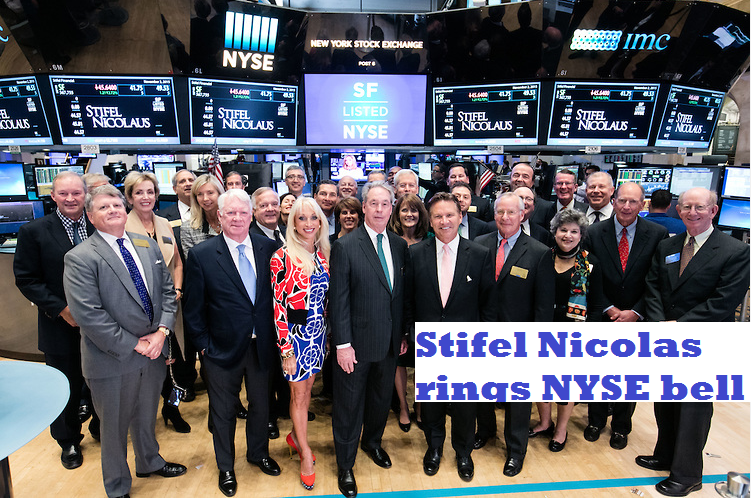BROWSE BY TOPIC
- Bad Brokers
- Compliance Concepts
- Investor Protection
- Investments - Unsuitable
- Investments - Strategies
- Investments - Private
- Features/Scandals
- Companies
- Technology/Internet
- Rules & Regulations
- Crimes
- Investments
- Bad Advisors
- Boiler Rooms
- Hirings/Transitions
- Terminations/Cost Cutting
- Regulators
- Wall Street News
- General News
- Donald Trump & Co.
- Lawsuits/Arbitrations
- Regulatory Sanctions
- Big Banks
- People
TRENDING TAGS
Stories of Interest
- Sarah ten Siethoff is New Associate Director of SEC Investment Management Rulemaking Office
- Catherine Keating Appointed CEO of BNY Mellon Wealth Management
- Credit Suisse to Pay $47Mn to Resolve DOJ Asia Probe
- SEC Chair Clayton Goes 'Hat in Hand' Before Congress on 2019 Budget Request
- SEC's Opening Remarks to the Elder Justice Coordinating Council
- Massachusetts Jury Convicts CA Attorney of Securities Fraud
- Deutsche Bank Says 3 Senior Investment Bankers to Leave Firm
- World’s Biggest Hedge Fund Reportedly ‘Bearish On Financial Assets’
- SEC Fines Constant Contact, Popular Email Marketer, for Overstating Subscriber Numbers
- SocGen Agrees to Pay $1.3 Billion to End Libya, Libor Probes
- Cryptocurrency Exchange Bitfinex Briefly Halts Trading After Cyber Attack
- SEC Names Valerie Szczepanik Senior Advisor for Digital Assets and Innovation
- SEC Modernizes Delivery of Fund Reports, Seeks Public Feedback on Improving Fund Disclosure
- NYSE Says SEC Plan to Limit Exchange Rebates Would Hurt Investors
- Deutsche Bank faces another challenge with Fed stress test
- Former JPMorgan Broker Files racial discrimination suit against company
- $3.3Mn Winning Bid for Lunch with Warren Buffett
- Julie Erhardt is SEC's New Acting Chief Risk Officer
- Chyhe Becker is SEC's New Acting Chief Economist, Acting Director of Economic and Risk Analysis Division
- Getting a Handle on Virtual Currencies - FINRA
ABOUT FINANCIALISH
We seek to provide information, insights and direction that may enable the Financial Community to effectively and efficiently operate in a regulatory risk-free environment by curating content from all over the web.
Stay Informed with the latest fanancialish news.
SUBSCRIBE FOR
NEWSLETTERS & ALERTS
Stifel, Nicolaus and Ex- Executive to Pay $25Mn & Admit Wrongdoing in Sale of Synthetic CDOs - SEC
St. Louis, MO-based broker-dealer, Stifel, Nicolaus and former SVP President David Noack agreed to admit wrongdoing and pay $24.5 million in disgorgement, fines and prejudgment interest to settle SEC charges involving the sale of synthetic collateralized debt obligations (CDOs) to 5 Wisconsin school districts.
According to the SEC, Stifel and Noack harmed 5 Wisconsin school districts by selling them $200 million in unsuitably risky and complex synthetic CDOs funded largely with borrowed money. Ultimately, the synthetic CDOs failed and the school districts suffered a complete loss of their cash investment.
Distributions to the school districts, along with the prior Fair Fund distribution of $30.4 million in a related case instituted in September 2011 and settlements obtained in the school districts' private lawsuit, will fully compensate the 5 Wisconsin school districts for their losses.
Judge Charles Clevert, Jr. also recites Stifel's and Noack's admissions to misconduct that harmed the Wisconsin school districts. In the final judgment, Stifel and Noack admitted, among other things, that they made certain material misstatements to the school districts that overstated the safety and downplayed the risks of investing in CDOs, and failed to disclose certain material facts, and did not independently perform any meaningful suitability analysis with respect to the CDO investments.
Noack also has consented to the entry of an SEC order, based on the court's entry of judgment, which imposes industry and penny stock bars, with the right to reapply after five years.





